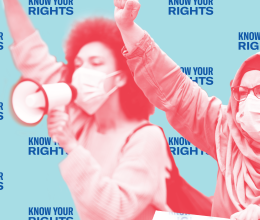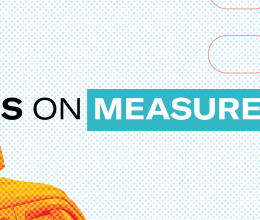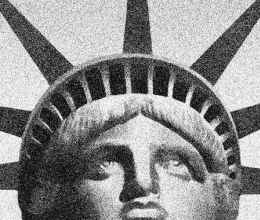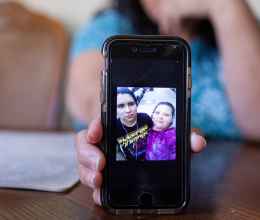
The ACLU of Southern California urged the federal government today to allow New York Times best-selling author Peter McWilliams to use physician-recommended marijuana as part of his treatment for AIDS, which has worsened dramatically since the government prohibited his use of the drug. "This is precisely the reason that the people of California - like those in 5 other western states - enacted a law legalizing the medical use of marijuana," said ACLU attorney Taylor Flynn. "After Mr. McWilliams and his doctor had successfully kept the HIV virus in check for two and a half years with the use of medical marijuana, the federal government in August 1998 prohibited Mr. McWilliams from using this essential medication as a condition of his release on bail. Within a few months, the amount of the HIV virus in his blood had increased twenty-fold and his life is in danger."
Mr. McWilliams, author of such best-selling books as Life 101 and How to Heal Depression, became a strong proponent of medical marijuana upon using it successfully, under a doctor's supervision, when no other drugs would work to calm the extreme nausea caused by his drug regimen. His drug regimen consists of the only treatment known to be effective in combating the HIV virus, a combination therapy commonly referred to as a "combination cocktail." Approximately 20% of the AIDS patients who begin combination therapy, however, are forced to give up this regimen due to the severe nausea it causes. Failure to keep the medication down not only means that the patient is deprived of the benefit of the drugs, but it also creates the risk that the HIV virus may mutate into a form which is resistant to all known medication.
On July 23, 1998 --2 years after the passage of California's medical marijuana proposition known as the Compassionate Use Act of 1996 --the federal government indicted Mr. McWilliams on charges of alleged manufacture and distribution of marijuana.
A hearing to consider Mr. McWilliams' request to continue to use medical marijuana is scheduled to take place in federal court in Los Angeles on February 22, 1999, before the Honorable Judge George King. AThe federal government is forcing Mr. McWilliams to choose between saving his life or forfeiting his freedom and the homes of his brother and disabled mother,@ said Mr. McWilliams' attorney, Thomas Ballanco, referring to the conditions of Mr. McWilliams' parole. Under these conditions, if Mr. McWilliams uses medical marijuana, he will be returned to prison and the government will confiscate the homes of his brother and mother, which were used as collateral for Mr. McWilliams' bail bond.
Not only do the conditions of his release place Mr. McWilliams in a double bind, explained ACLU attorney Taylor Flynn, "the federal government is denying to Mr. McWilliams precisely what they are providing - free of charge - to 8 other seriously ill Americans: the use of medical marijuana." Under the Food and Drug Administration's Investigative New Drug Program - which has been in place for fifteen years - the federal government runs a marijuana farm at the University of Mississippi, where it grows marijuana for research purposes and supplies each of the program's 8 patients with 300 marijuana cigarettes per month. One of these patients, Elvy Musikka, has suffered from glaucoma for more than 20 years. "I lost most of my vision in one eye because I was afraid of trying marijuana, since it was an illegal drug," said Ms. Musikka. "As with Peter McWilliams, however, no other drug worked for me. Since using medical marijuana and becoming a patient in the government program, my vision has improved immeasurably. For me, it has meant the difference between sight and blindness."
As Mr. McWilliams' attorney explained, Mr. McWilliams is simply requesting the option of using marijuana under the supervision of a doctor - or the federal government: "All we are asking is that the court modify the order which prevents Mr. McWilliams' limited personal use of medical marijuana under his doctor's supervision, or that the court enroll Mr. McWilliams into the existing federal medical marijuana program," said Thomas Ballanco.






